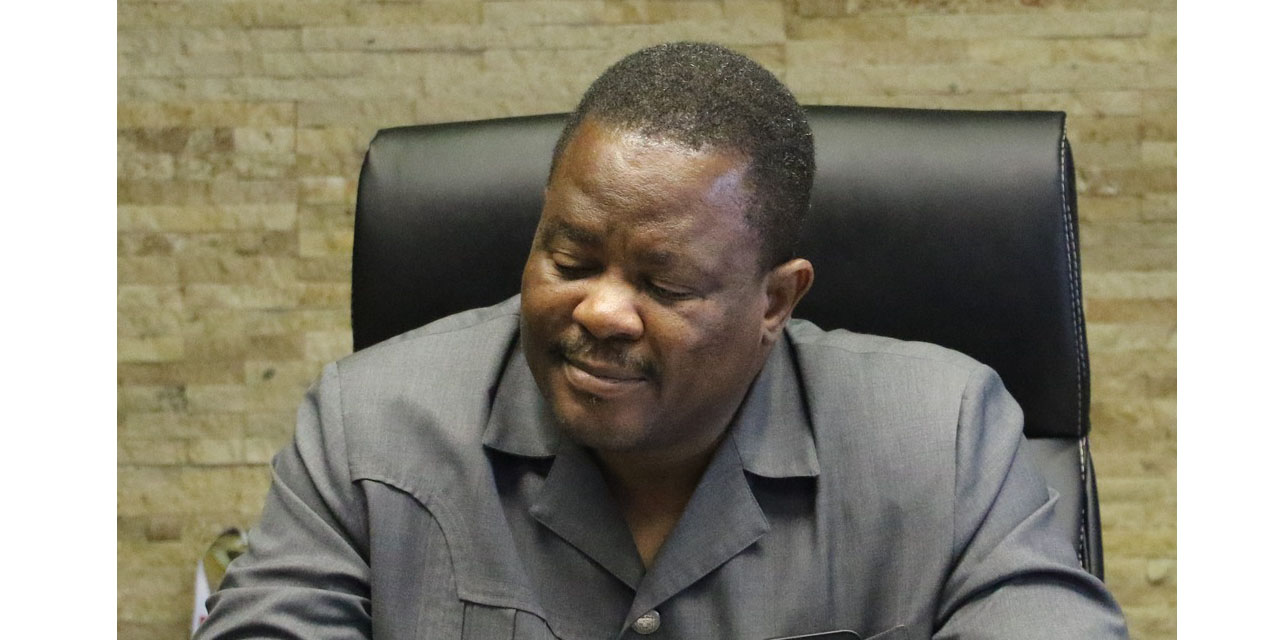Martin Endjala
The Electricity Control Board has resolved to increase the National Utility Nampower average bulk electricity tariffs by 8.97 percent from its initial request of 16.87 percent, meaning that the approved tariff has been increased from N$1.82 to N$1.98 per kilowatt-hour for the 2023/24 financial year.
The increase was announced today by ECB Chief Executive Officer, Robert Kahimise, who said that increase is in accordance with existing legal provisions.
Nampower submitted a tariff application for an effective bulk tariff, inclusive of a generation and transmission increase of 16.87 percent, which would have resulted in an increase from an average of N$1.8222 per kilowatt-hour (kWh) to 2.1296 per kWh for the financial period of 2023-24.
However, this was not the case after the board of directors of ECB met on the 28th of April 2023, to deliberate on the review of Nampower’s bulk tariff application for the 2023/24 financial year.
The increase will be effective from the 1st of July 2023, to next year June 2024. Annual electricity tariff reviews are conducted to ensure that utilities charge appropriate tariffs to collect enough revenue to cover costs and provide reliable and efficient services at affordable cost-effective rates.
In addition, it further ensures that electricity consumers pay the appropriate tariffs for electricity supply.
Kahimise reiterated that this was not easy as they had to consider several factors in reviewing the tariff, which includes the impact of tariffs on the electricity supply industry, consumers and the economy at large.
“The ECB is cognizant that prices of goods and services have been increasing and this has negatively affected consumers, as part of the review, ECB consulted different stakeholders, where views were presented, followed by facts, and evidence on tariff application, which then led to the decision-making process of the tariff approval,” Kahimise explained.
To mitigate the impact of the Nampower high tariff for the year under review, the CEO said an amount of N$200 million has been made available from the Long Run Marginal Cost (LRMC) fund, to provide relief for all customers and is allowed as part of the energy revenue requirement of Nampower.
The amount will, however, only be used to cover costs related to energy imports, and fuel for Van Eck and Anixas, as well as to cover part of the prior approved under-recovery cost.
As a result of this bailout, the N$200 million was one of the ECB’s main reasons why Nampower’s initial 16.87 average bulk tariff request was reduced to 8.97 percent.
To this end, I am confident that the N$200 million availed for Nampower, the 8.97 percent increase for Nampower is workable and the good news is that consumers will not pay for the availed money at all, putting all things into consideration”, said Kahimise.
The approved tariff will be applicable to NamPower bulk customers such as regional Electricity Distributors, Local Authorities, Regional Councils and large industrial transmission customers like Mines.
All distribution licenses will individually apply to the ECB for a review of their distribution tariffs, which when approved will be applicable to end consumers effective 1 July.
Distributors are, therefore, urged to inform and engage their consumers on their intended applications to the regulator.
Meanwhile, it is forecasted that national demand will be met at 59 percent by regional imports and 41 percent by local generation for the period of 2023/24.
In an effort to counter electricity burdens, to complement local generation, Nampower has implemented several electricity generation projects of which two are expected to be commissioned during 2024, Anixas II – 50 MW, is expected to commercial operation next year in April, and Khan solar PV – 20 MW is expected to follow suit in the third quarter of next year as well.
Kahimise noted with cognisance that despite the fact that the economy is depressed but equally dependent on reliable and affordable electricity supply, it is the responsibility of the regulator to ensure a sustainable electricity industry with affordable tariffs.
The ECB will continue to monitor and ensure that the operational costs of Nampower and distributors remain within set efficiency targets and benchmarks.
On a rather negative note, future tariffs are projected to increase in line with inflation, to cater for the new generation as per the national Integrated Resource Plan.




